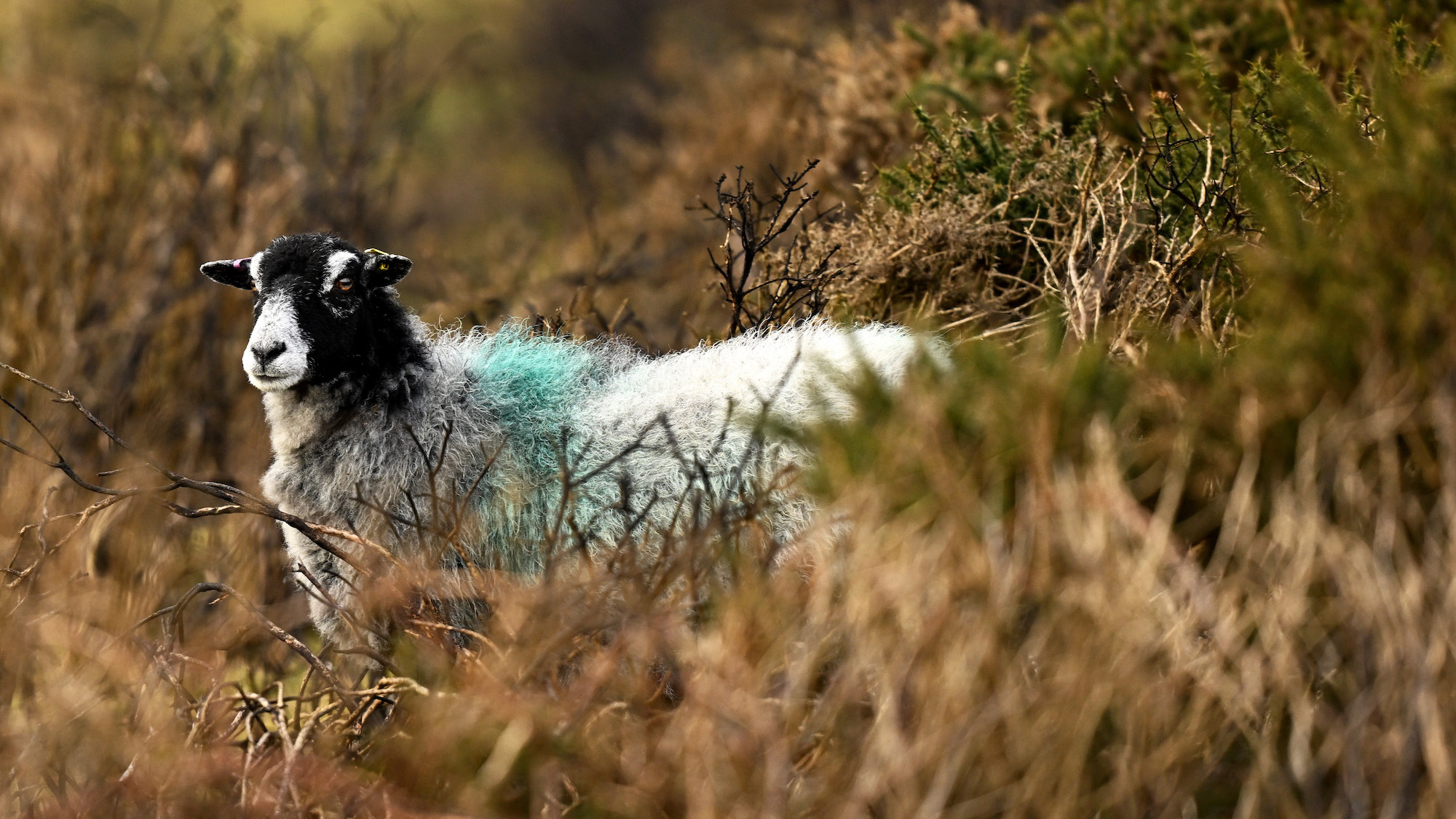Why a row over rewilding threatens the sheep on Dartmoor
Natural England says overgrazing is destroying the area's habitat

A free daily email with the biggest news stories of the day – and the best features from TheWeek.com
You are now subscribed
Your newsletter sign-up was successful
An ongoing row over the preservation of Dartmoor National Park could threaten the herds of sheep that graze there and the livelihoods of local farmers.
Natural England, the government watchdog that monitors the natural habitat of the area, told farmers earlier this year that "they will have to reduce their stocks" and make half of their livestock "cattle or ponies rather than sheep". The measures were to combat overgrazing, "which is destroying habitats", and help restore and rewild Dartmoor's natural environment, said The Guardian in April.
Sheep have grazed on the moors for centuries and around 90% of the national park is used for farming. New restrictions on grazing could have a catastrophic impact on farm businesses, argue farmers and some Tory MPs, particularly as those on Dartmoor "operate on some of the tightest margins of any farmers in the country", said The Telegraph.
The Week
Escape your echo chamber. Get the facts behind the news, plus analysis from multiple perspectives.

Sign up for The Week's Free Newsletters
From our morning news briefing to a weekly Good News Newsletter, get the best of The Week delivered directly to your inbox.
From our morning news briefing to a weekly Good News Newsletter, get the best of The Week delivered directly to your inbox.
Why is Natural England worried?
Dartmoor has numerous sites of special scientific interest (SSSI), most of which which Natural England says are in "unfavourable condition". Conservationists say that years of grazing have destroyed a significant amount of the natural plant life and driven several species of birds close to local extinction.
Natural England's regional director, Dave Slater, said that while grazing is "not the only factor" in the decline of Dartmoor's natural habitats, it remains "quite an important" one.
The government body agreed agri-environmental subsidies with farmers around 10 years ago, offering financial incentives to steady regular grazing levels and help restore plant life and habitats. It is now suggesting that those payments could stop if livestock numbers are not significantly reduced.
Critics argue that farmers should not be "paid millions of pounds of taxpayers' money for environmental stewardship" if they do not change their practices when the habitat is being degraded, said The Guardian.
A free daily email with the biggest news stories of the day – and the best features from TheWeek.com
Some of the agreements, though, were "inadequate" to begin with, argued The Economist, while "others were ignored", and the fact farmers were able to "disregard" these agreements pointed to "fundamental flaws with the stewardship of the national parks".
What are the farmers saying?
The reaction among farmers to Natural England's "missive" was "swift and overwhelmingly negative", said The Telegraph, with the Farmers Guardian newspaper accusing it of “rewilding by the back door". Many farmers see it as an attack on the viability of their businesses, though Natural England says it does not want to "entirely remove livestock" and that "farmers are valued as stewards of the land".
Local Tory MPs, who published a statement in reaction to Natural England's call for grazing reductions, said the plans would "destroy the ancient traditional hefted flocks" of Dartmoor and have a "significant adverse impact on farm businesses".
Natural England, however, argues that non-traditional year-round grazing, which has only begun in the last 60 years with the introduction of hardier Scottish Blackface sheep to Dartmoor, has had a significant impact on the habitat. One of those MPs, Geoffrey Cox, said flocks "will be lost" and businesses will fail if Natural England succeeded in eliminating winter grazing.
Farmers also feel "underappreciated" for the work they do to preserve the moors and their understanding, added The Telegraph. They take on duties including "maintaining the landscape for visitors, clearing the mediaeval leats that carry water across the moor and, most importantly, monitoring wildfire risk" on top of their farming.
What next?
An independent review into Dartmoor's protected sites has since been launched by the Department for Environment, Food and Rural Affairs (Defra) with the outcome due before the end of the year.
Environmental campaigners are hopeful "it will boost Natural England's powers", while farmers want "to see the body's remit and leadership overhauled", said The Economist.
The "heavily anticipated" results of the review also highlight the broader arguments over "what we should do with our uplands", added The Telegraph, particularly in the "face of climate change and the decline of nature". Whatever the results of the review, there is still "much distrust" for Natural England to "overcome" if it wants to work with farmers in rewilding Dartmoor.
Richard Windsor is a freelance writer for The Week Digital. He began his journalism career writing about politics and sport while studying at the University of Southampton. He then worked across various football publications before specialising in cycling for almost nine years, covering major races including the Tour de France and interviewing some of the sport’s top riders. He led Cycling Weekly’s digital platforms as editor for seven of those years, helping to transform the publication into the UK’s largest cycling website. He now works as a freelance writer, editor and consultant.